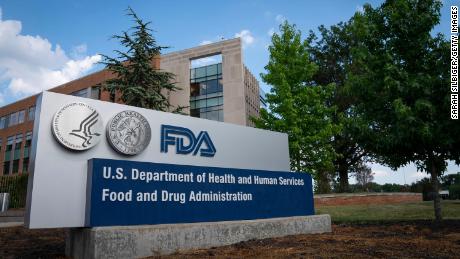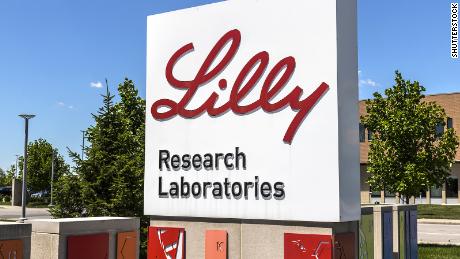The FDA establishes advisory committees to assist the federal agency with one of its most important duties: deciding whether to approve the distribution of new drugs. The stakes of these decisions are enormous. Based on the outcome of the FDA’s deliberations, patients may gain access to lifesaving medicines, and manufacturers may reap billions in profits. Kesselheim, a professor at Harvard Medical School, was one of the members of this committee because of his expertise on pharmaceuticals that address diseases of the brain, including Alzheimer’s, the irreversible, progressive brain disorder that destroys memory and thinking skills, and eventually causes death. Alzheimer’s is the sixth leading cause of death in the United States.
In light of this record, and the need to improve it, Kesselheim was looking forward to examining the prospects for Biogen’s new drug. “The great thing about advisory committees is that they are independent, and they don’t have a stake in the outcome,” he said. “We were just an independent group providing their opinion.”
As in all advisory committee meetings, this one included several representatives of the FDA and of the applying pharmaceutical company. Dr. Billy Dunn, the director of neuroscience at the FDA, spoke at length on the call, and Samantha Budd Haeberlein, a senior vice president of Biogen, led the representatives for the company. What was unusual about this meeting, though, according to Kesselheim, was the apparent relationship between the FDA and company representatives.
“There was a strange dynamic, compared to the other advisory committee meetings I’ve attended,” Kesselheim said. “Usually there’s some distance between the FDA and the company, but on this one the company and the FDA were fully in line with each other in support of the drug.”
Dunn in particular was outspoken in his support for the effectiveness of the drug, calling some of the evidence in its favor a “home run,” while opponents of approval described the same evidence as inconclusive or worse. Dunn noted further that the FDA “has determined that it is appropriate to exercise the broadest flexibility in applying the statutory standards for these conditions.”
From a regulatory perspective, drugs can work in two ways: They can work to treat disease or they can address a surrogate measure for the disease. Take heart attacks, for example. A drug can directly reduce the chances of heart attack or it can address a surrogate for heart attack — like cholesterol.
At the November meeting, according to Kesselheim, the issue was treatment of Alzheimer’s itself, not any surrogate. “The discussion at the committee related to the clinical benefits of the drug” — that is, whether it slowed the cognitive decline of Alzheimer’s patients, he said.
Most of the meeting was devoted to analysis of Biogen’s own studies of the effectiveness of Aduhelm. The results were not promising in terms of clinical outcomes. Indeed, two of Biogen’s major studies of people taking Aduhelm had been shut down before they were completed because they showed no significant benefit to patients. (Aduhelm, which is injected intravenously, also caused significant side effects, including brain swelling in about a third of patients. Brain swelling, at a minimum, can produce painful headaches as well as more serious problems, including, in rare cases, death.)
In light of this, the advisory committee voted, with one member voting uncertain but no one dissenting, to recommend that the FDA reject the drug.
FDA gave Biogen final approval to treat patients with Aduhelm in all stages of Alzheimer’s disease. Reflecting the confidence in its judgment, the agency even acted on an accelerated basis.
Kesselheim and two other members of the advisory committee promptly resigned in protest. In his letter of resignation, Kesselheim called the Aduhelm process “probably the worst drug approval decision in recent US history.”
one study found that between 2008 and 2015 the agency rejected advisory committee recommendations 22% of the time. But Kesselheim, along with the other experts CNN interviewed, could not recall a single occasion when the FDA had rejected the unanimous conclusion of an advisory committee — which is what happened here.
The FDA’s decision to approve Aduhelm has already had significant consequences. In the first place, the drug may give hope to the roughly 6 million Alzheimer’s sufferers in the United States and their families.
“The approval has already renewed investment activity in Alzheimer’s disease research and development, and we are optimistic that other innovative treatments will soon join Aduhelm,” said Allison Parks, a spokeswoman for Biogen. “We are proud of the work our dedicated team has done to develop Aduhelm, and of the potential it brings to Alzheimer’s patients.”
Aduhelm will be extremely expensive, as an intravenous treatment that will cost about $56,000 per year, plus several thousand more in related expenses. Given the number of Alzheimer’s patients in the United States, the cost for widespread use of this treatment could quickly run into the many billions of dollars — much of which would go to Biogen and its partner in the project, Eisai, a Japanese pharmaceutical company. If Aduhelm is approved as a treatment by Medicare, which is currently weighing the issue, the taxpayers will pay much of the tab.
At its core, though, the controversy about Aduhelm raises a fundamental question: Did the FDA approve a drug that doesn’t help people — and if so, why?
‘What’s going on here?’
“Alzheimer’s is really like nothing else in chronic disease because it is so devastating to the family and caregivers as well as the people who have it,” said Harry Johns, the president of the Alzheimer’s Association, the nation’s largest advocacy group for victims of the disease. “Six million people have it now, and by mid-century that’s going to double because of the aging of the population. If you figure at least two caregivers per afflicted person, that’s an enormous toll on the country.”
Alzheimer’s first robs victims of their memory, and then takes their lives. Despite all research efforts, Alzheimer’s remains both incurable and fatal.
The dire course of the disease, and its prevalence, have led to a rush of investment in potential treatments. Sixteen years ago, the federal government spent $450 million a year on Alzheimer’s research; today the annual total is $3.1 billion. Private investment, based on the promise of millions of potential customers, has soared as well. But progress has been glacial to nonexistent.
This prior record of futility appears to have played some role in the FDA’s decision to approve Aduhelm. As Courtney Rhodes, an FDA spokeswoman, said, “Given the unmet needs for patients with Alzheimer’s disease — a serious, progressive and ultimately fatal disease — the agency chose to use the accelerated approval pathway to allow earlier access to patients while we continue to acquire data on the drug’s benefit.” The FDA will continue to collect data on the effectiveness of Aduhelm for the next nine years.
But other parts of the FDA’s explanation for its decision surprised and angered advisory committee members.
Aduhelm is designed to address a surrogate end point for Alzheimer’s disease, just like cholesterol medication addresses a surrogate end point for heart disease. Advanced medical scans reveal that many Alzheimer’s patients have what are called amyloid plaques — toxic nests of proteins — in their brains. As the FDA said in its original statement on Aduhelm, “While the specific causes of Alzheimer’s disease are not fully known, it is characterized by changes in the brain—including amyloid plaques and neurofibrillary, or tau, tangles—that result in loss of neurons and their connections.” Aduhelm is designed to remove some of the plaques, and thus, the theory goes, slow the progress of symptoms of Alzheimer’s disease.
“For the last 20 or 30 years, there has been a tremendous emphasis in the research on what’s known as the amyloid cascade hypothesis — the idea that amyloid isn’t just a symptom of the disease but that it’s a cause of the disease,” said Dr. Caleb Alexander, an epidemiologist at Johns Hopkins who has served on the same FDA advisory committee as Kesselheim for eight years. “There has been enormous investment in various therapies to reduce amyloid and some have even succeeded, but none of them have produced the corresponding gains in cognition. In other words, reducing amyloid has not meant that anyone is actually getting better.”
Still, when the FDA approved Aduhelm in June, it did so because the drug reduced plaque. As the agency said in its announcement of the approval, three studies involving more than 3,000 patients in total showed that “patients receiving the treatment had significant dose-and time-dependent reduction of amyloid beta plaque, while patients in the control arm of the studies had no reduction of amyloid beta plaque.” The logic was straightforward for a surrogate medication: Less plaque meant less disease meant fewer symptoms. As Rhodes, the FDA spokeswoman, said, the FDA “concluded that it is reasonably likely that this reduction in amyloid plaque will result in meaningful clinical benefit to patients.”
But that reasoning immediately came under attack from the members of the advisory committee.
“The reduction of plaque is a surrogate measure, a lab measurement which stands in for a clinical end point, which is how a patient feels, function or survives,” Kesselheim said. “Amyloid plaque is a protein deposit on the brain that you can observe on a PET scan. Some Alzheimer’s patients have it, and some don’t have it. It’s associated with Alzheimer’s, but it’s not a perfect association. We don’t know what it means to reduce the amyloid plaque. It’s not 100% clear. In contrast, your LDL cholesterol level is a clear surrogate measure. If you change your LDL, then you reduce the number of heart attacks and strokes.”
As Dr. David Knopman, a neurologist at the Mayo Clinic, wrote in his email of resignation from the advisory committee, “Biomarker justification for approval in the absence of consistent clinical benefit after 18 months of treatment is indefensible.”
But committee members were surprised by more than the FDA’s decision to use what they regard as a flawed surrogate measure to approve the drug. They were especially offended because the issue of amyloid plaque hadn’t really been raised at the committee meeting in November.
“The whole focus of the advisory committee meeting was whether the medication affected cognitive function — which it didn’t improve — but not whether it affected some surrogate for cognitive function,” said Kesselheim.
Worse yet, according to the critics, the FDA gave Aduhelm accelerated approval in June, another possibility that had not been raised before the committee. (In notable contrast, the FDA did not act in an accelerated fashion when it finally approved the Pfizer/BionTech vaccine for Covid-19 in August.)
The FDA remains adamant that both the process and the result of the review of Aduhelm were correct.
“We appreciate the perspective of the members of the advisory committee and value their input,” the FDA’s Rhodes said, “The advisory committee’s view was that there was insufficient evidence that the drug provided clinical benefit. Taking the advisory committee’s input into account, we considered the application further and determined that although there was residual uncertainty about clinical benefit, as the committee told us, Aduhelm does reduce amyloid plaque.”
Still, the contested medical evidence, plus the apparent coziness of the FDA and Biogen representatives, raised questions about whether the agency was taking the advisory committee seriously at all.
As Knopman put it, “While I realize that the committee is advisory, the approval of aducanumab appears [to] have been foreordained.”
As Alexander of Johns Hopkins put it, “It’s the billion-dollar question: What’s going on here? In the face of all this, why did the FDA approve the drug?”
Should the market decide?
Supporters of the FDA’s decision, which include the Alzheimer’s Association, have a simple answer to this question. The FDA approved Aduhelm because it was the right thing to do.
“We strongly advocated approval on the basis of the available science, knowing full well that this is no cure,” said Johns, the association’s president. “It is a really marginal advantage, but that marginal difference can make a real difference for people who have a great need.”
In a larger sense, Johns believes that the FDA’s critics are applying an unfair standard. “We are opening the door to a first treatment, and first treatment in most illnesses is not very good. The first treatments of cancer and HIV/AIDS were not very good, but they led to major improvements. If you get a first treatment, not only do you get other treatments but the treatments get better.”
Critics reject this rationale.
“To make the case that something is better than nothing is not the law of the land in the United States. That’s not the evidentiary basis for market access. They have to show substantial evidence of efficacy, and they didn’t,” said Alexander. “You can argue that, theoretically, that this drug should work, but we don’t approve drugs on that basis in the United States. We do it based on data, not based on theory.”
The question of how the FDA evaluated the data about Aduhelm is at the core of the controversy over its approval. It wasn’t just the outside advisory committee that was unimpressed by the testing results for the drug.
first reported by The New York Times, an internal FDA review committee, after meetings in March and April, also found no justification for approval of the drug. According to minutes of the meeting of approximately 15 government scientists, the vast majority questioned whether the evidence met the threshold for “instilling public confidence in the usefulness of the drug.” One member of the committee said, according to the minutes, approval could “result in millions of patients taking aducanumab without any indication of actually receiving any benefit, or worse, cause harm.”
What was more, the FDA’s statistical analysis unit produced a study of the Aduhelm results that concluded “there is no compelling substantial evidence of treatment effect or disease slowing.”
The question, then, is what happened between April and June, when the drug was approved, to turn things around. To Dr. Michael Carome, a physician who is the director of the Health Research Group for the consumer advocacy nonprofit Public Citizen, which has long been critical of the FDA, the reason for the agency’s action can be summed up by the phenomenon known as regulatory capture, that is, the pharmaceutical industry has effectively taken control of the part of the government that is supposed to regulate it.
“We believe that the FDA, starting back in 2019, worked in inappropriately close collaboration with Biogen,” said Carome, who testified at the advisory committee meeting against FDA approval of Aduhelm. “FDA became a partner with Biogen, and they made the decision about whether to approve the drug. They were not objective, unbiased regulators. It seems as if the decision was preordained.”
roughly 45% of the FDA’s budget.
“The politicians like user fees, because that means they don’t have to allocate taxpayer money,” Carome said, “but what this has done is encourage the agency to become a partner with industry. This has led to regulatory capture of the agency, which is now looking at best interests of the company rather than the best interests of public health.”
Carome notes, too, that advocacy organizations like the Alzheimer’s Association also receive substantial funding from pharmaceutical companies. (Johns replies that his organization makes its decisions on the merits and that contributions from Biogen and Eisai provide only a small portion of its budget — just 0.15%.)
The question of how much influence Biogen exerted on the FDA to approve Aduhelm remains unsettled. The regulatory process for pharmaceuticals is relatively unstructured, at least compared with court cases, where parties are forbidden from privately approaching the judge.
“Communications between people at the FDA and companies whose drugs are being reviewed happen all the time,” said Susan Wood, a former senior official at the FDA who is now a professor at George Washington University.
public guidance on the issue, “Sponsors often solicit feedback from FDA on both scientific and regulatory issues, especially at critical junctures in their development program.” To the FDA, this is a good thing. “Communication between FDA and sponsors during drug development and at critical junctures in drug development may ultimately facilitate earlier availability of safe and effective drugs to the American public,” the guidance continues.
For example, the FDA and the makers of the Covid-19 vaccines were in regular communication while the drugs were under review and available on an experimental basis, and millions of Americans were able to obtain the shots and protect themselves. Likewise, the FDA welcomed Biogen’s involvement in the approval process.
“The FDA often works closely with industry to help foster drug development, understand emerging data, and advise on best approaches to development plans, especially in areas where there is a significant need for treatments for devastating diseases. Throughout this review process, FDA worked with the sponsor to understand emerging data,” Rhodes said.
As the Times first reported, the FDA’s Dunn and Biogen’s Haeberlein collaborated on publications and made joint presentations while the company’s application for Aduhelm was pending. Because this work did not directly involve Aduhelm, it is probably permissible, if perhaps unwise.
first reported by Stat News. Under FDA regulations, all meetings where FDA officials and company executives share clinical data about a pending application are supposed to be documented. But Stat News reported that Dunn and Al Sandrock, who is now the head of research and development at Biogen, met at a conference in Philadelphia in May 2019. There the two men discussed the possibility of an accelerated approval for Aduhelm — which the drug ultimately received. Dunn, as well as Biogen’s Sandrock and Haeberlein, declined to comment, but their representatives asserted that they had behaved appropriately at all times.
In a statement earlier this summer, Sandrock said, “The approval of Aduhelm by the U.S. Food and Drug Administration (FDA) came after an extensive development, testing and review process. Over more than a decade, we at Biogen engaged in rigorous and science-driven research and development that assessed whether Aduhelm could help patients worldwide who suffer from Alzheimer’s disease. We are proud of the work our dedicated team has done to develop Aduhelm, and of the potential it brings to Alzheimer’s patients. We are equally proud of the professionalism both our team and the FDA demonstrated during a thorough review process.”
The approval for Aduhelm also comes as part of a broader evolution at the FDA, which seems to be exercising a lighter regulatory touch across the board.
According to Dr. Michael Greicius, a professor and clinician who treats Alzheimer’s patients at Stanford’s medical school, “The idea at the FDA increasingly seems to be if a drug is potentially effective and not clearly harmful, the market should decide whether patients should use it.”
Congress passed a similar law in 2018, to expand patient access to experimental therapies. The spirit behind these rules — giving patients with serious or life-threatening conditions every opportunity to find treatments that work — is understandable, but critics say they do little but provide false hope.
“There’s this libertarian idea that people should have the opportunity to choose what they put into their own bodies,” Harvard’s Kesselheim said. “But that sort of free market is what led the FDA to start weighing the costs and benefits of drugs in the first place during the early 1960s. When pharmaceutical companies can sell almost anything they want, with no oversight from government, that’s not a situation that’s good for patients.”
The question for families
marketing campaign in support of the drug, starting with advertisements on the internet. Despite these efforts, the controversy over the FDA’s approval of Aduhelm has led to a rocky launch for the product. Two major medical centers,
Mount Sinai and the Cleveland Clinic, as well as the
Veterans Health Administration, announced that they would not stock or administer Aduhelm to any patients because they are not convinced of its effectiveness.
the Medicare system is reviewing whether to approve payments for use of Aduhelm. The overwhelming majority of people with Alzheimer’s are 65 and older, and thus are covered by Medicare. Medicare almost always covers FDA-approved drugs, but if it were to reject Aduhelm, that would be a major blow to the product and its owner, Biogen. (A decision is likely by the end of the year.)
committees in Congress have vowed to hold hearings about the approval process, and individual representatives have been scathing in their criticism of both the FDA and Biogen.
a 13-page letter demanding a great deal of information about the process that had led to the approval of Aduhelm.
letter to President Joe Biden, Sen. Joe Manchin, a West Virginia Democrat, demanded that Dr. Janet Woodcock, the acting commissioner of the FDA, be fired, even though the agency has said she played no role in the Aduhelm decision. Manchin said the Aduhelm approval process “brings into question the current interim leadership of Dr. Woodcock, at a time when strong, trusted leadership at our health agencies is most important.” (Biden has not yet nominated a permanent leader for the FDA.)
Woodcock, in turn, has asked for the agency’s inspector general to review the Aduhelm approval.
limiting the market somewhat. But the company is plowing ahead.
In a call with stock analysts in July, Michel Vounatsos, the chief executive of Biogen, acknowledged “confusion and criticism” surrounding the approval of Aduhelm but said the company was proceeding with its product launch. “I want to be clear that Biogen stands behind the integrity of the review process,” Vounatsos said.
Notwithstanding the controversy, the company has estimated that first-year sales of the drug will be about $1 billion. (Lilly, another major pharmaceutical company, has a similar product in the approval process at the FDA, and has sought to receive approval on the same grounds.)
All of which leaves perhaps the most important question: What should Alzheimer’s patients and their families do? The question is especially difficult because, at the moment, neither insurance nor Medicare will cover the cost of Aduhelm.
“Once the FDA approved it, I’ve been faced with the real-world possibility of prescribing it to this person sitting in front of me,” said Greicius, who studies the disease and treats patients at Stanford.
“I think some patients and family members, even when presented with the lack of clinical efficacy, concerning side effect profile and out-of-pocket costs, will opt to roll the dice because they feel they have nothing to lose,” he said. “There is no question that patients, family members and physicians are all desperate for a medication that helps. That’s what makes the false hope of Aduhelm particularly cruel.”











